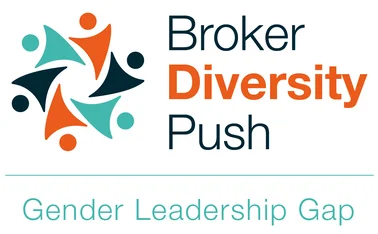
Succession planning: Consider consolidation

Consolidation can provide an elegant solution for brokers wanting a smooth transition when they sell their businesses, writes Sam Barrett
Consolidation is a natural part of any sector’s lifecycle. But, to ensure the UK retains a healthy and vibrant independent broker market, a carefully considered approach to acquisitions is essential.
While retaining healthy competition is important, Mike Greenland, Aviva’s head of regional broker sales – South, says consolidation can create considerable benefits for the broker market. “It can bring strength and innovation,” he states. “There’s room for all sizes of broker business but, following an acquisition, people often take advantage of the larger scale to focus on building better products or propositions. It can be very positive for the businesses involved and the sector generally.”
Buyer challenges
But, while building a business through acquisitions can be rewarding, it’s not without its challenges. Given the complexities of a deal, it can be very time-consuming, with acquisitions taking anything from a few months to several years to complete. “Deals often take longer than you anticipate,” says Sharon Brown, group distribution and marketing director at Miles Smith. “If the business hasn’t done any preparation for sale, be prepared for the due diligence to take a little longer.”
Striking a balance between the demands of your existing business and those of potential acquisitions is essential. This is often further complicated by the fact that non-disclosure arrangements will be in place making it important to reallocate workloads sensitively.
To ensure the acquisition process receives adequate attention, some brokers have the luxury of a dedicated team but, where this isn’t an option, Greenland emphasises that it pays to seek advice first. “It may be beneficial to change roles within the business to enable you to pursue acquisition opportunities. I’d recommend speaking to other brokers who’ve gone through the process to fully understand how it might affect you and your business.”
We look for a number of different criteria when considering acquisitions… A business that has outgrown its model and requires the support and scalability of a larger parent can be an attractive proposition
Sharon Brown
Support mechanisms
Whether the first or the thirty-first, with acquisitions so time and labour intensive, it’s prudent to tap into external expertise throughout the process. Des O’Connor, chief commercial officer at Broker Network, lists that he turns to three key advisers when he’s looking at potential acquisitions. “We have a very focused team internally that oversees aspects such as the operational and commercial due diligence and designs an integration roadmap prior to acquisition, but we also work with a corporate finance adviser and a small number of legal and financial advisers,” he says.
External expertise can also be vital when it comes to identifying potential acquisitions. Although some deals come about as a result of existing business contacts, brokers can also use M&A industry experts to alert them to opportunities.
Acquisition software tools can also support a broker looking to grow their business. As an example, one of the tools Brown uses is Plimsoll, which provides business intelligence on different sectors, including insurance broking. By searching on details such as the age and structure of the board, this can help identify potential acquisition targets.
Insurers can play the role of matchmaker too, with Greenland saying he will help to facilitate an acquisition where he can. “Our relationships with brokers means we are well positioned to help them achieve business aspirations. This could be by introducing them to external support or to other broker firms.”
Buyer benefits
While acquisitions are not without their challenges, those who’ve been through the process agree that the benefits far outweigh the aggravation.
These benefits can be ramped up when the right deal is made. For example, Peter Blanc, group CEO of Aston Scott, says his firm is particularly keen on acquiring businesses that have a specialism. “This specialism can be offered through our other branches to enhance our proposition,” he explains.
As examples, among the new areas his firm has expanded into as a result of acquisitions are healthcare, renovation and, through specialist proposition Road Runner, the motor trade.
Other acquisition characteristics that can benefit the buyer include geographic location, with brokers looking to extend their reach or build scale in a particular area, and the right sized business. “We look for a number of different criteria when considering acquisitions,” notes Brown. “As an example, a business that has outgrown its model and requires the support and scalability of a larger parent can be an attractive proposition.”
Our relationships with brokers means we are well positioned to help them achieve business aspirations. This could be by introducing them to external support or to other broker firms
Mike Greenland
Good to sell
The right deal will suit the seller too. This could see them taking the cash and heading off to the golf course or, more commonly, becoming part of the larger business, either on a permanent basis or for a pre-determined term.
O’Connor flags that his firm can take a flexible approach to accommodating the needs of the seller. “An owner manager will have given heart and soul for 30 or so years,” he says. “When they sell we’re happy for them to keep going in the business, perhaps on a reduced basis mentoring a younger person to step into their shoes. It can be a much more elegant exit.”
Joining another organisation can also open up new opportunities for business owners. Although he’s made acquisitions in the past, and is planning more in the future, John Collyear, CEO of Vantage Insurance, reveals that selling the business to US broker NSM Insurance in 2016 has been really exciting.
“It’s been like a shot in the arm,” he stresses. “With NSM Insurance behind us, it’s made people sit up and take notice. Insurers take us more seriously and we’ve also been approached by businesses looking to be acquired. I wish we’d done it earlier.”
Wider advantages
The benefits of a successful acquisition aren’t restricted to those involved in the negotiations, with employees and clients often enjoying better conditions post-sale. “If you work for someone in the twilight of their career, it can be unsettling,” says Blanc. “Being acquired and becoming part of a larger organisation offers employees many more opportunities.”
There are rewards for customers too. As well as a broader range of products, scale means customers may benefit from better terms from insurers.
Buying other businesses also bring benefits that may not be realised for several years. Greenland concludes: “Acquisitions can be an important part of a broker’s own succession planning. Building a strong, well-structured business will give them more options when they decide they want to leave the sector.”

Insurer viewpoint
With M&A activity on the rise in the insurance sector, it’s clear that there is an increasing number of options available for those looking to sell, from a whole host of different types of buyers. That increasing choice can often cloud the decision-making process of who to sell to when the time is right. Selling is one of the most important decisions that any business owner will face and is often something they will undertake only once in their business life.
So it’s probably no great surprise when we hear from brokers, who have taken the time to find a buyer with a similar business culture and philosophy, that this approach has led to better outcomes for all parties – the buyer, the seller, the staff and, crucially, the customer. Conversely, those who focus only on maximising the sale price, have often expressed regrets about not paying as much care and attention to the culture of the organisation they were selling to. Finding the right solution is critical, but often difficult to achieve.
Creating opportunities to bring independent brokers together has been one of the continuing themes of the work that we have been doing at Aviva in recent years. For example, our Club 110 conferences have been the stimulus for a number of broker marriages. Helping independent brokers to realise their acquisition ambitions has been central to our distribution strategy and will continue to be our focus for many years to come.

Mergers or acquisitions can often help to breathe new life into an organisation and lead to renewed dynamism, energy and growth. With the creation of our Succession Partner Proposition, we are helping independent brokers to be a natural home for other independent brokers, who are looking to sell. Through the provision of expert help at each stage and a proposition that provides long-term solutions for funding, employees and customers – it’s designed to create a legacy that all parties can look back on with pride.
Phil Bayles, chief distribution officer, UKGI, Aviva
Only users who have a paid subscription or are part of a corporate subscription are able to print or copy content.
To access these options, along with all other subscription benefits, please contact info@insuranceage.co.uk or view our subscription options here: https://subscriptions.insuranceage.co.uk/subscribe
You are currently unable to print this content. Please contact info@insuranceage.co.uk to find out more.
You are currently unable to copy this content. Please contact info@insuranceage.co.uk to find out more.
Copyright Infopro Digital Limited. All rights reserved.
As outlined in our terms and conditions, https://www.infopro-digital.com/terms-and-conditions/subscriptions/ (point 2.4), printing is limited to a single copy.
If you would like to purchase additional rights please email info@insuranceage.co.uk
Copyright Infopro Digital Limited. All rights reserved.
You may share this content using our article tools. As outlined in our terms and conditions, https://www.infopro-digital.com/terms-and-conditions/subscriptions/ (clause 2.4), an Authorised User may only make one copy of the materials for their own personal use. You must also comply with the restrictions in clause 2.5.
If you would like to purchase additional rights please email info@insuranceage.co.uk







